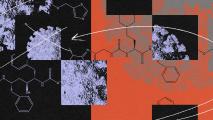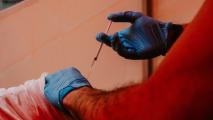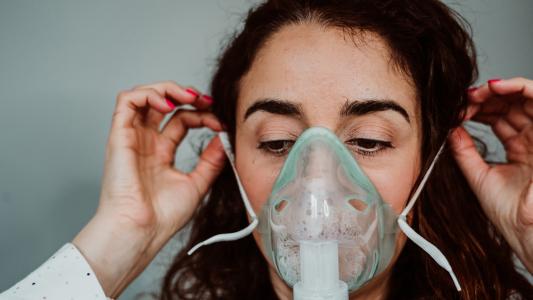Scientists are developing a nasal spray for coronavirus prevention using griffithsin, a protein found in red algae.
If the spray can successfully stop a coronavirus infection from taking hold, it could serve as a stopgap for vulnerable populations until a COVID-19 vaccine is developed and distributed.
A Dose of Coronavirus Prevention
Past research on griffithsin has revealed the protein’s ability to bind to viruses, including SARS, MERS, and Ebola, in a way that prevents them from infecting cells, both in animals and human cell cultures.
More than a decade ago, scientists at the University of Louisville (UofL) contributed to a study that showed how to cheaply produce large quantities of the protein in a relative of the tobacco plant.
This is not like a vaccine. This will be more of an on-demand type product.
Lisa Rohan
“The end result is all protein, so there’s nothing from the plant itself,” UofL researcher Kenneth Palmer said in a press release. “We purify the plant, so there’s no harmful components left. It’s like when people use bacteria to make antibiotics.”
Palmer and his colleagues at UofL were working with scientists at the University of Pittsburgh to turn a modified version of the protein, Q-griffithsin, into a potential HIV preventative when the COVID-19 pandemic began.
They quickly pivoted their research toward coronavirus prevention and decided that a nasal spray made the most sense as a delivery method for Q-griffithsin.
“We feel a nasal spray is perfect… to neutralize the virus before it gets into the lungs and causes a lot of clinical complications,” PITT researcher Lisa Rohan told Next Pittsburgh.
Waiting for a COVID-19 Vaccine
While a COVID-19 vaccine would protect people specifically from the novel coronavirus SARS-CoV-2 — hopefully, permanently — the nasal spray would be a different kind of coronavirus prevention.
“This is not like a vaccine,” Rohan told Next Pittsburgh. “This will be more of an on-demand type product. (You’d be) spraying it daily in each nostril. If you’re going to the grocery store, or into work, it would hopefully provide protection while you’re on your shift.”
The scientists say they envision prioritizing the distribution of their spray to people at high-risk of contracting COVID-19, such as frontline healthcare workers or people with weakened immune systems, as a way of protecting them until a vaccine is ready.
They expect results of animal tests in June, and if everything looks good, they’re hopeful they’ll be able to fast-track human studies of their nasal spray for coronavirus prevention.
“This is a product that already has a nice safety profile and has an application that has allowed it (to) move forward in the clinic,” Rohan said in the press release. “We believe this is a product we can rapidly advance in a realistic way.”
“With adequate funding, we’re hoping to move the product into the clinic before the end of the year,” she continued.
We’d love to hear from you! If you have a comment about this article or if you have a tip for a future Freethink story, please email us at [email protected].






